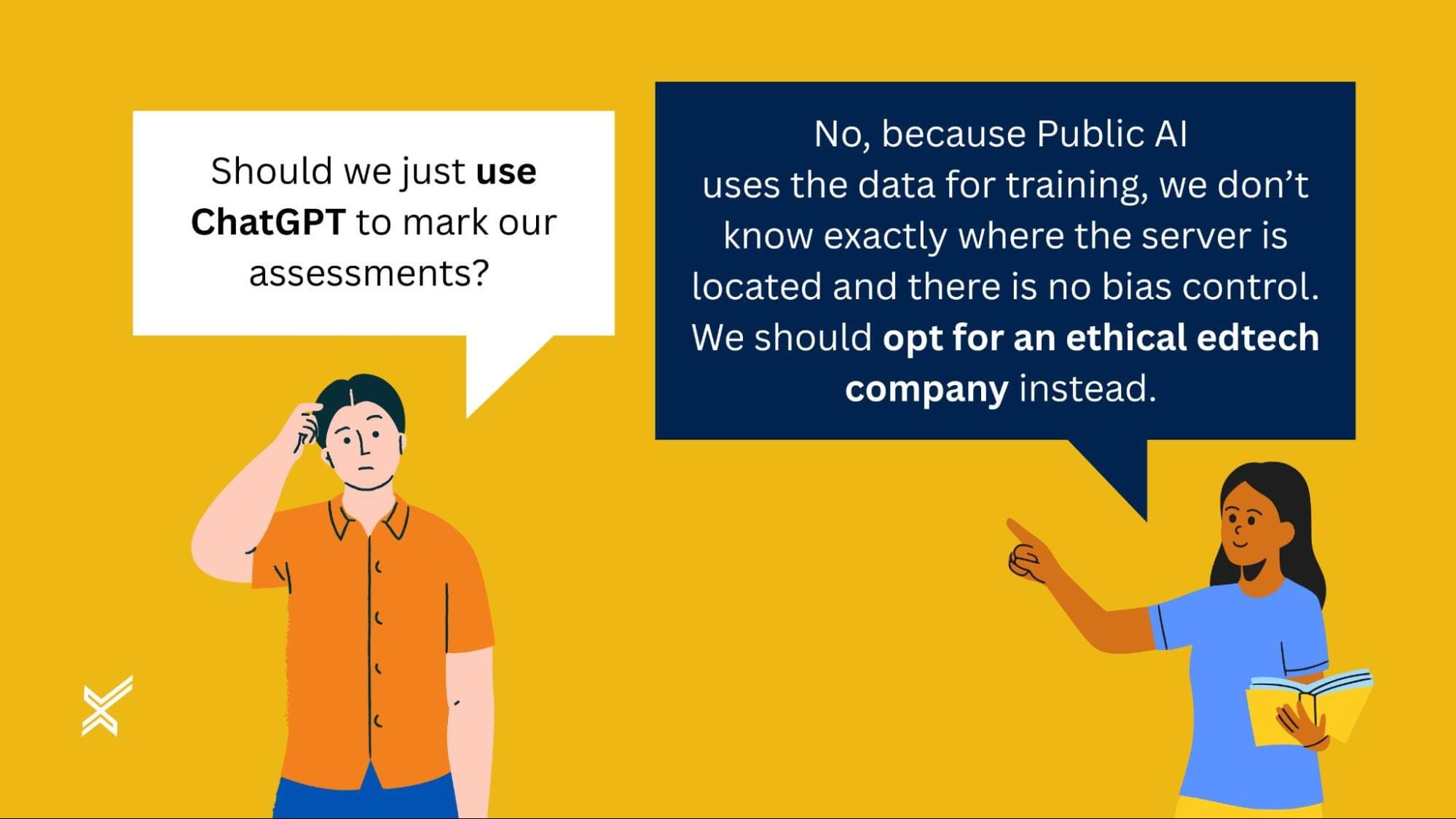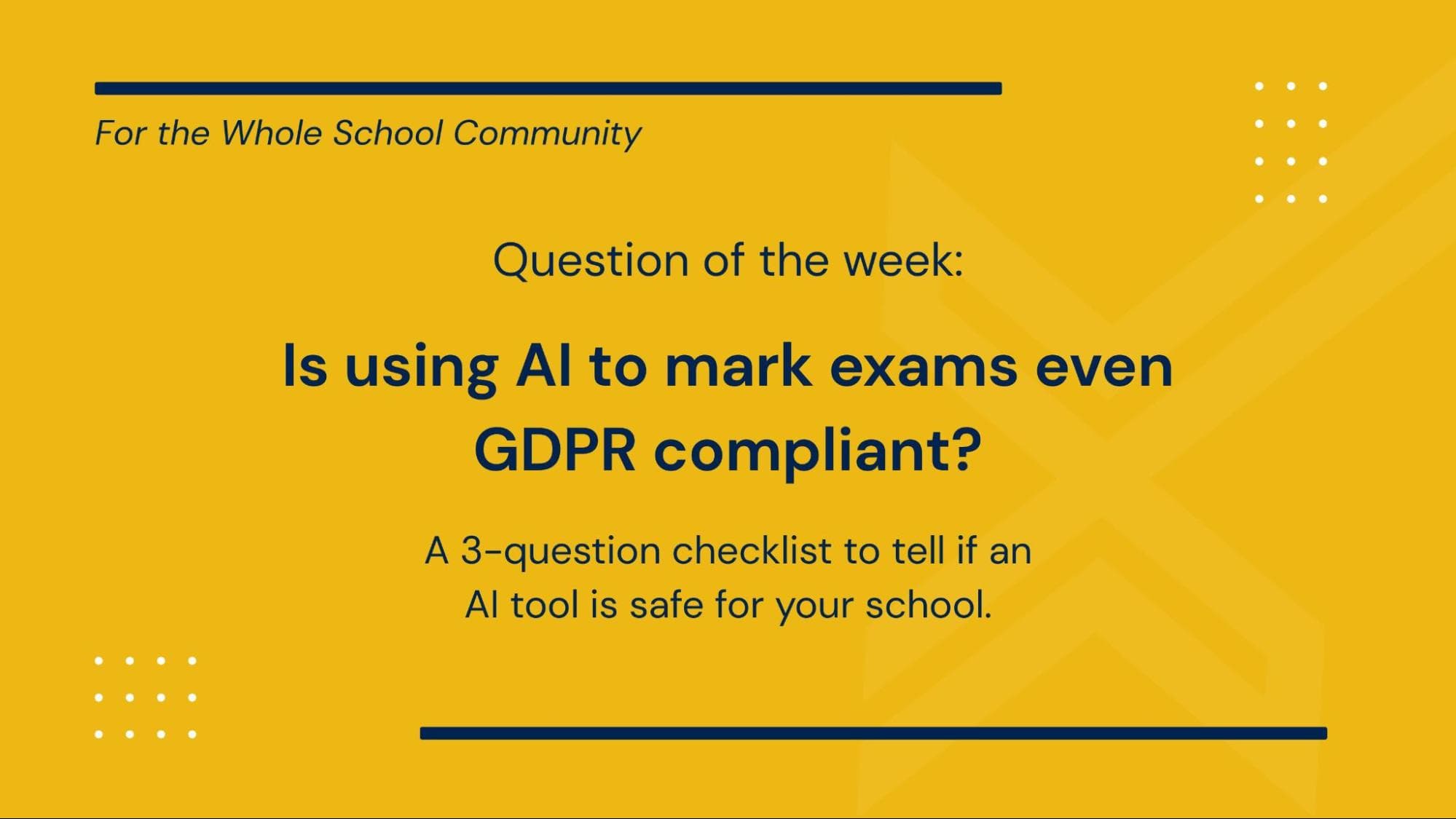Is it safe to use AI to mark student exams? A guide to the ethics of automated assessment.
For schools across the UK, the promise of AI marking is undeniable. The ability to reclaim weekends and get instant, granular data is a game-changer. But for every Head Teacher and Data Protection Officer (DPO) excited about the efficiency, there is a nagging worry:
Is it safe?
When we talk about handing over student work to an AI paper marker, we aren't just talking about grades; we are talking about data. Student handwriting, names, potential identifiers—it all feeds into the system. In an era of GDPR and heightened digital safeguarding, understanding the ethics of the algorithm is no longer optional; it's a prerequisite for procurement.
So, how do you distinguish a secure, professional exam marking software from a risky, "black box" experiment? Here is the educator's guide to navigating the ethics of AI assessment.
The Core Concern: Where Does the Data Go?
The biggest misconception about AI in schools is that it's all the same. It isn't. There is a massive difference between a public chatbot and a dedicated exam marking service.
When you type a query into a free, public AI model, that data often leaves your control. It might be used to train the next version of the model. For a school, that is a red line.
What to look for: You need an AI marker for GCSE and A-Level workflows that operates on a "Closed Loop" system. This means:
- Data Sovereignty: Student data should ideally remain on UK or EU servers, protected by strict privacy laws.
- Zero-Training Policy: The vendor should explicitly state that your students' exam papers are not used to train their public algorithms without your explicit consent. The AI should do the job of marking, and then forget the personal data, retaining only the anonymised performance insights.
Bias and Fairness: Can an Algorithm Be Prejudiced?
A major ethical hurdle for exam marking software is bias. If an AI is trained heavily on handwriting from one demographic, could it unfairly penalise another?
Ethical AI isn't just about code; it's about the curriculum. A robust system must be trained on a diverse, representative dataset of real student scripts from across the school spectrum.
The Science Context: This is particularly vital in subjects like Science. When performing science exam AI analysis, the system must be able to distinguish between a "wrong" answer and a "correct answer expressed differently."
- Example: If a student explains photosynthesis using correct terminology but poor grammar, an ethical algorithm (like a human examiner) credits the scientific knowledge (A01). A biased or simplistic tool might penalise language skills. True AI marking mimics the intent of the mark scheme, not just keyword matching.
The "Human-in-the-Loop" Principle
The most ethical AI doesn't try to replace the teacher; it empowers them. Avoid any AI paper marker that claims to be "100% autonomous" with no oversight.
Ethical implementation requires a "Human-in-the-Loop". This means:
- Teacher Override: You should always have the power to review and change a mark given by the AI.
- Vendor Transparency: The AI provider must be absolutely clear and upfront about the system's capabilities and, more importantly, its limitations. An ethical vendor doesn't "over-promise"; it defines the boundaries. For example, if a system is not designed to mark complex diagrams, the vendor must state that. This ensures teachers aren't relying on a system that is processing unsupported content. True partnership isn't about the AI "flagging" its own mistakes; it's about the provider being transparent so you know exactly where to apply your human expertise.

Ethical AI Procurement Checklist
Your Checklist for Ethical AI Procurement
Before you onboard a new exam marking service, ask these three questions. If they can't answer them clearly, walk away.
- "Is this GDPR compliant, and where is the data hosted?" (Look for UK/EU hosting)
- "Does your model learn from my students' data to benefit other customers?" (The answer should generally be no, or only with anonymised, aggregated consent)
- "How do you handle hallucinations or uncertainty?" (They should be clear about the AI's limitations and mechanism)
The Excelas Promise: Security by Design
At Excelas, we built our platform with privacy as the foundation, not an afterthought. We understand that trust is just as important as speed.
- Enterprise-Grade Security: We function as a secure, closed exam marking software environment. Your data is yours.
- Curriculum-Aligned Fairness: Our AI marker for GCSE subjects is trained on the specific nuances of UK mark schemes, ensuring valid, unbiased assessment.
- Deep Analysis: Whether it's complex maths working or detailed science exam AI analysis, our system looks for understanding, ensuring students get the credit they deserve.
AI is the future of assessment. But it must be a future built on safety, ethics, and trust.
Want to see how AI marking can be both incredibly fast and incredibly secure? We've built the ethical standard for automated assessment. See ExamGPT in action here.
